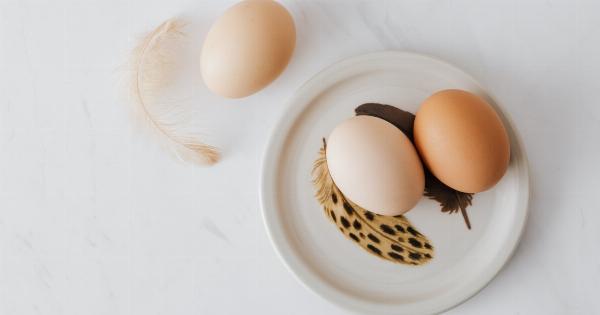A cholesterol blood test is a common diagnostic tool used to measure the levels of different types of cholesterol and fats in your blood.
This test helps in evaluating your risk of developing heart disease and determining the effectiveness of cholesterol-lowering medications or lifestyle changes. If you have an upcoming cholesterol blood test, you might wonder whether it is okay to eat the night before. In this article, we will discuss the recommended guidelines for preparing for a cholesterol blood test.
Understanding Cholesterol Levels
Before diving into the preparation for a cholesterol blood test, it is essential to understand the different types of cholesterol and their significance. Cholesterol is a waxy substance that is produced by your liver and is also found in certain foods.
It is carried through your bloodstream by lipoproteins.
There are two primary types of lipoproteins:.
1. Low-Density Lipoprotein (LDL) – commonly known as “bad” cholesterol because high levels of LDL can lead to the formation of plaque in your arteries, increasing the risk of heart disease.
2. High-Density Lipoprotein (HDL) – often referred to as “good” cholesterol as it helps remove LDL from your bloodstream, reducing the risk of heart disease.
Triglycerides are another form of fat present in your blood. High levels of triglycerides combined with high LDL cholesterol can raise your risk of cardiovascular problems.
Preparation Guidelines for a Cholesterol Blood Test
Generally, doctors and laboratories provide specific instructions to follow before a cholesterol blood test. These guidelines typically include dietary restrictions, fasting periods, and specific conditions.
It is essential to follow these instructions accurately to ensure accurate test results. Here are some common instructions:.
1. Fasting Before the Test
Most cholesterol blood tests require fasting for 9-12 hours before the test. Fasting allows for an accurate assessment of your cholesterol levels as the test measures the total cholesterol, LDL, HDL, and triglyceride levels in your fasting state.
During the fasting period:.
• Avoid consuming any food or drink, besides water.
• Refrain from chewing gum or sucking on mints.
• Do not consume alcohol for at least 24 hours before your test.
It is important to note that breaking your fast, even with a small snack or drink, can affect your cholesterol levels and the accuracy of the test results.
2. Medication and Supplements
Inform your doctor about any medications or supplements you are taking before the blood test. Certain medications, such as statins (cholesterol-lowering drugs), may influence your cholesterol levels.
Your doctor may advise you to discontinue these medications for a specific period before the test to obtain accurate results.
3. Regular Diet Before the Test
The question of whether you can eat the night before a cholesterol blood test depends on the specific instructions provided by your doctor or laboratory.
In some cases, you may be required to follow a specific diet for a few days or weeks before the test. This diet usually involves eating heart-healthy foods, avoiding high cholesterol or high-fat foods.
If your doctor has not provided any specific dietary instructions, you can continue with your regular diet. However, it is still essential to practice healthy eating habits as part of your overall cholesterol management.
4. Hydration
Staying well-hydrated is crucial for accurate blood test results. Drink plenty of water before and after the fasting period to prevent dehydration.
However, avoid any other fluids, such as coffee or juice, during the fasting period, as they may affect your cholesterol levels.
5. Follow Your Doctor’s Advice
It is important to follow any specific instructions provided by your doctor or laboratory regarding the cholesterol blood test. They may recommend additional guidelines or precautions based on your individual health status and medical history.
Interpreting the Results
After completing the cholesterol blood test, your doctor will analyze the results and discuss them with you. The results will typically provide measurements of your total cholesterol, LDL cholesterol, HDL cholesterol, and triglycerides.
Your doctor will interpret these values and discuss their implications. They will also consider other risk factors such as age, sex, blood pressure, and family history of heart disease to evaluate your overall cardiovascular risk.
Based on these factors, further treatment or lifestyle modifications may be recommended.
Conclusion
A cholesterol blood test is a valuable tool for assessing your heart health and identifying any potential risks. To ensure accurate results, it is crucial to follow the specific preparation guidelines provided by your doctor or laboratory.
This may include fasting for a specific duration, avoiding certain medications or supplements, and following a heart-healthy diet. By following these guidelines, you can help your healthcare provider make an accurate diagnosis and develop an appropriate treatment plan if necessary.






























